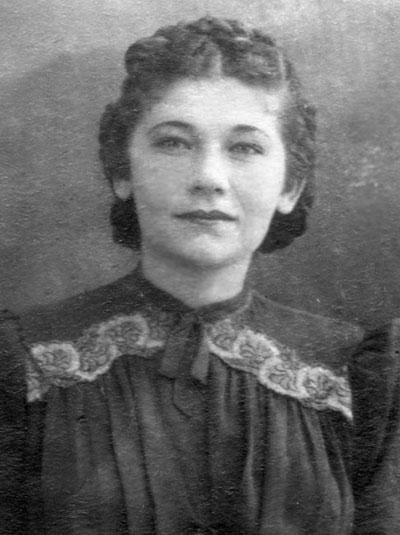

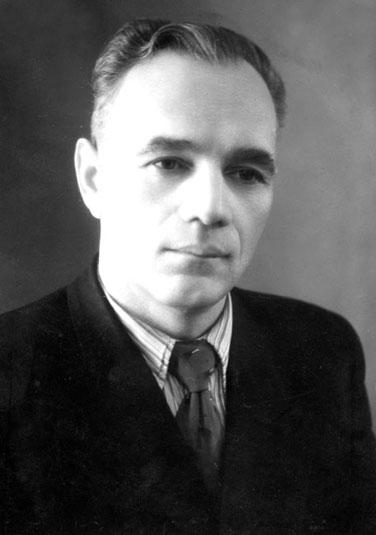

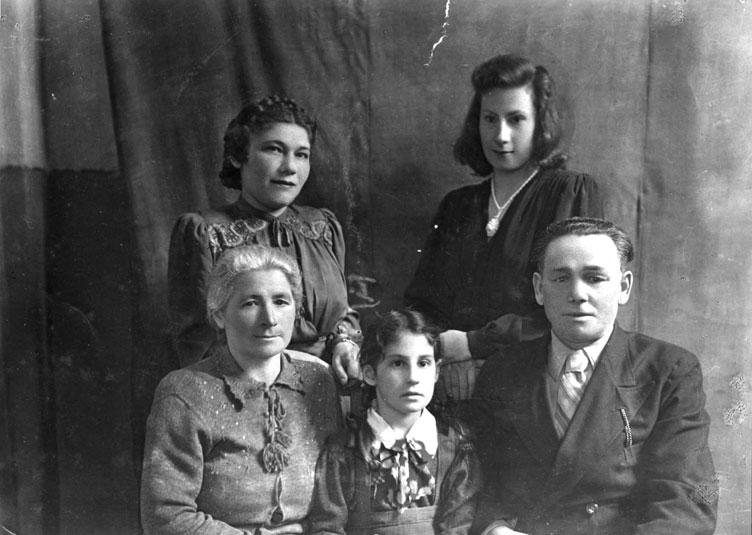

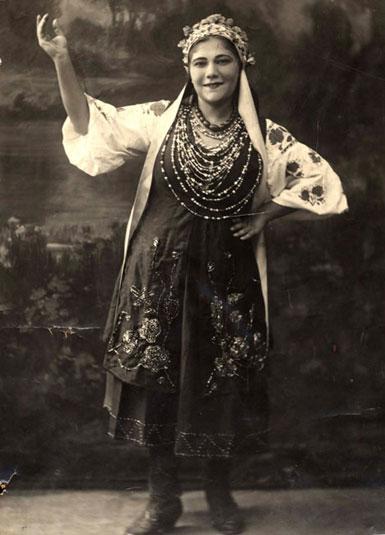

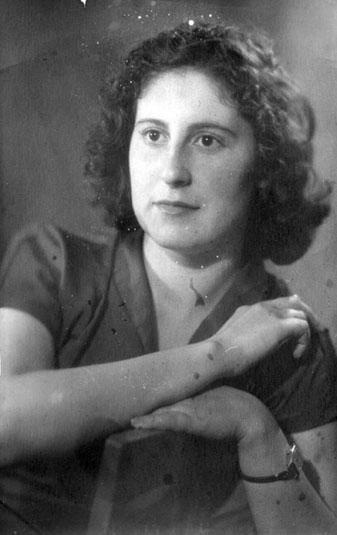

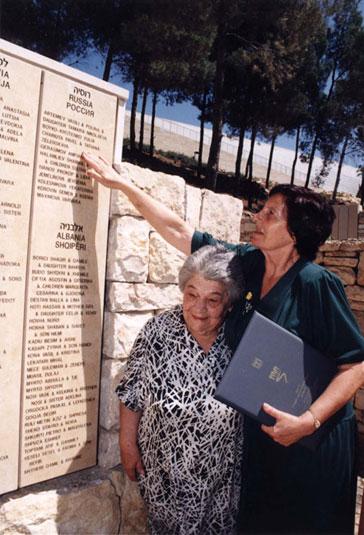

Sunday to Thursday: 09:00-17:00
Fridays and Holiday eves: 09:00-14:00
Yad Vashem is closed on Saturdays and all Jewish Holidays.
Entrance to the Holocaust History Museum is not permitted for children under the age of 10. Babies in strollers or carriers will not be permitted to enter.
| Tatiana Zelenskaya and Pavel Chariuta |












In December 1941, in the city of Simferopol in the former Soviet Union, Tatiana Zelenskaya, a singer, and her husband, Pavel Chariuta, the musician who accompanied her, were young actors performing together on stage. The city was already under Nazi rule when one of the theater employees approached Tatiana with a request that would save a life and forever change the lives of the young couple.
The employee, whom Tatiana would later realize, had heard of the German plans via his connection with the municipal underground, asked if she would take in and hide a Jewish child. He informed her that in just a few days all the Jews in the city would be gathered in one location prior to their deportation. At the collection point it would be possible, in the general confusion, to “steal” a few children, and by so doing to save them, he confided.
In spite of the danger, Tatiana agreed and on the appointed day and time she stood in a nearby alley leading to the designated collection point of the Jews and waited. After some time, a stranger appeared leading a little girl with black, curly hair and big, frightened eyes by the hand. The woman handed her charge to Tatiana who walked home with the child through the city’s alleys and back streets. As Tatiana took off the little girl’s coat, a note, with the child’s name, address, and date of birth fell to the floor.
From that day on, four-year-old Luba Kogan lived in Tatiana and Pavel’s home. At first, she was sad, refused to eat and constantly asked, “where is my mother?” Weeks passed, and slowly Luba’s memories of her life faded and were replaced with new impressions, until one day she referred to Tatiana as “Mother.” It was not long before Tatiana and Pavel became extremely attached to Luba and could not imagine life without her.
Although it was illegal to harbor a Jewish child and the neighbors were well aware of Luba, not a single one of them questioned her origins or disclosed her presence during the two years and two months of the war.
Years later, when Tatiana herself was questioned as to whether she was frightened to hide a Jewish child, she replied, “I was young… I did what I felt I had to do. My parents told me that I was jeopardizing myself, but my husband supported me.”
Following the war the couple attempted to determine the fate of Luba’s parents. Through the Kogan family’s neighbors they learned that Luba’s mother and brother had been executed and that her father died while serving on the front.
In 1947, a man who introduced himself as a representative of the Jewish community approached the couple with an offer of monetary assistance towards Luba’s care. Tatiana and Pavel refused for fear that if they accepted aid, Luba would be taken from them.
Luba continued to live with the couple well into adolescence without knowing that Tatiana and Pavel were not her biological parents. In 1953, when Luba was 16 years old and was required to obtain an identity card, Tatiana finally told her the true story of her childhood, and only then did Tatiana and Pavel officially adopt Luba.
In 1965, when Luba was already married and herself a mother, a coincidental meeting resulted in a startling turn of events. Luba’s husband, a taxi driver, met another taxi driver, an older man, with a story to tell. As the younger man listened to the details which seemed to match the details of his wife’s life, he came to the uncertain, but intuitive conclusion that this man might be Luba’s biological father, who until then had been presumed dead in battle. As it turned out, after the war when Itzak Kogan, Luba’s father, returned to Simferopol, following his service in the Red Army, his neighbors informed him that his wife and his two children had been killed. Overwhelmed by his loss, Itzak could not continue to live in Simferopol and therefore moved to Krasnodar in Russia. In time, Itzak remarried, started a new family, and began working as a taxi driver.
Following this encounter with Luba's husband that seemed more miracle than sheer coincidence, father and daughter were reunited in an emotional meeting that was reported by the local newspaper. Many years later, following the deaths of both Pavel and Itzak, Luba brought Tatiana, the woman who saved her life and adopted her as her own child, to live with her. In 1993 one of Luba's sons immigrated to Israel with his family. While visiting Yad Vashem for the first time, her son learned of Yad Vashem's Righteous Among the Nations Department and told his mother's story to its staff members.
In 1995 Tatiana Zelenskaya and Pavel Chariuta received the Righteous Among the Nations designation at a ceremony held at Yad Vashem.
During the ceremony, Tatiana recalled the bittersweet twist of fate in a hushed voice and with tears in her eyes: "I remember that fall evening in 1941 when 15,000 Jews were murdered and how happy I was that I was able to save one life, that of a little girl who is standing next to me today, my beloved and only daughter."
That same year Luba, her family, and Tatiana Zelenskaya immigrated to Israel where they are still living together today.

Thank you for registering to receive information from Yad Vashem.
You will receive periodic updates regarding recent events, publications and new initiatives.

"The work of Yad Vashem is critical and necessary to remind the world of the consequences of hate"
Paul Daly
#GivingTuesday
Donate to Educate Against Hate


Worldwide antisemitism is on the rise.
At Yad Vashem, we strive to make the world a better place by combating antisemitism through teacher training, international lectures and workshops and online courses.
We need you to partner with us in this vital mission to #EducateAgainstHate
The good news:
The Yad Vashem website had recently undergone a major upgrade!
The less good news:
The page you are looking for has apparently been moved.
We are therefore redirecting you to what we hope will be a useful landing page.
For any questions/clarifications/problems, please contact: webmaster@yadvashem.org.il
Press the X button to continue



